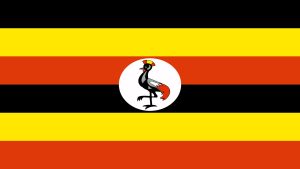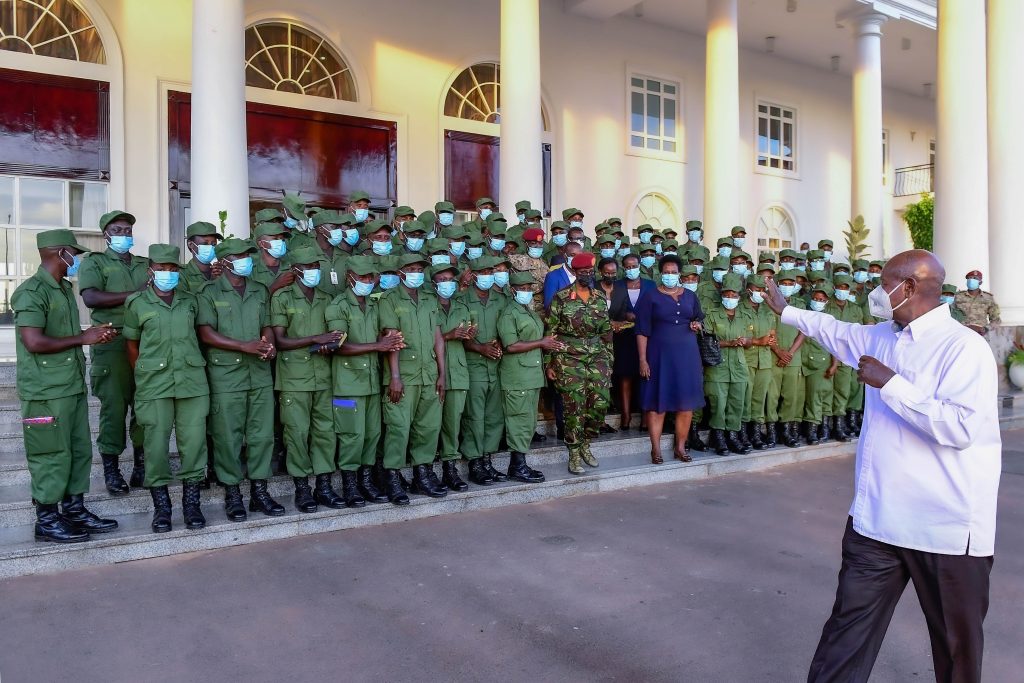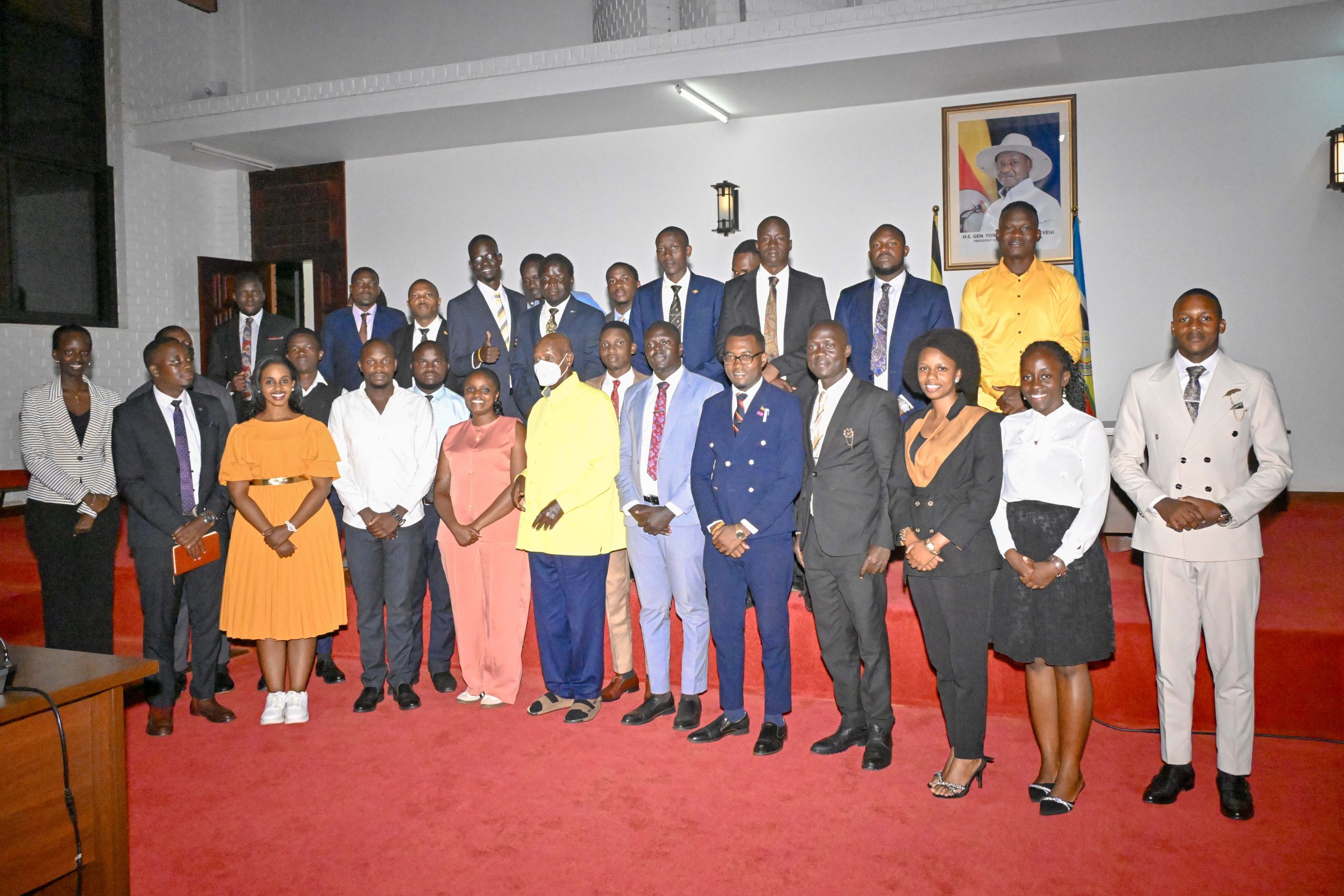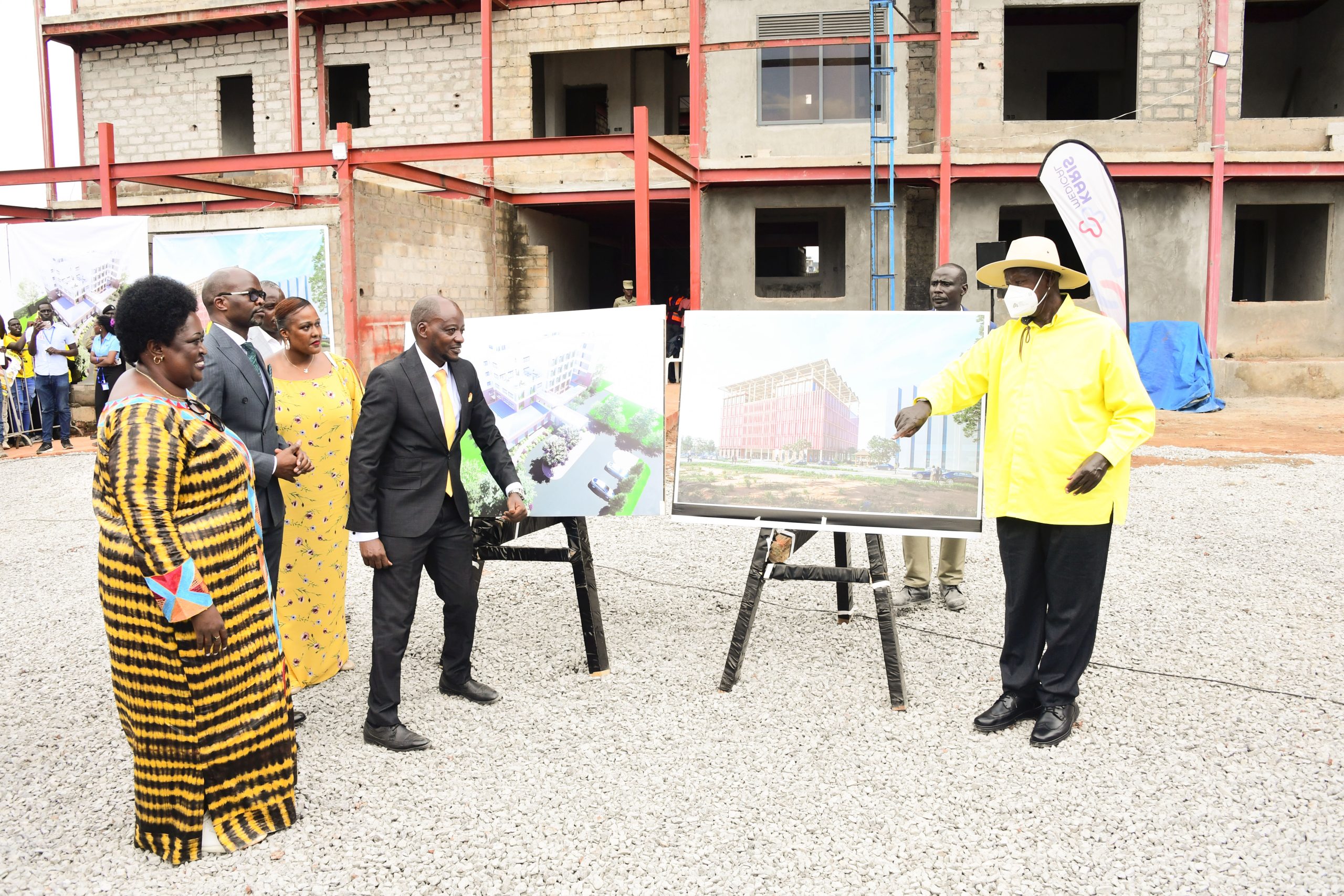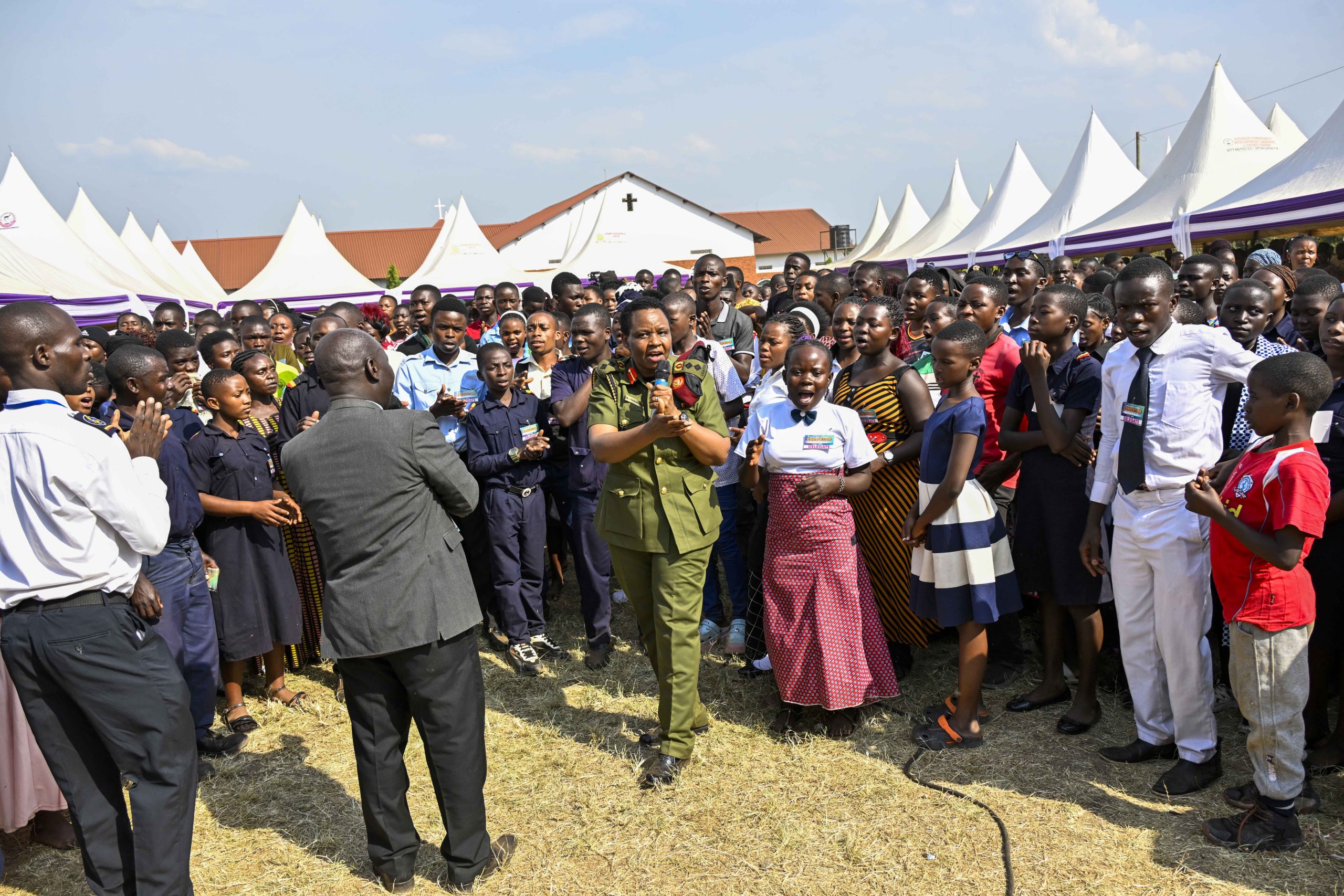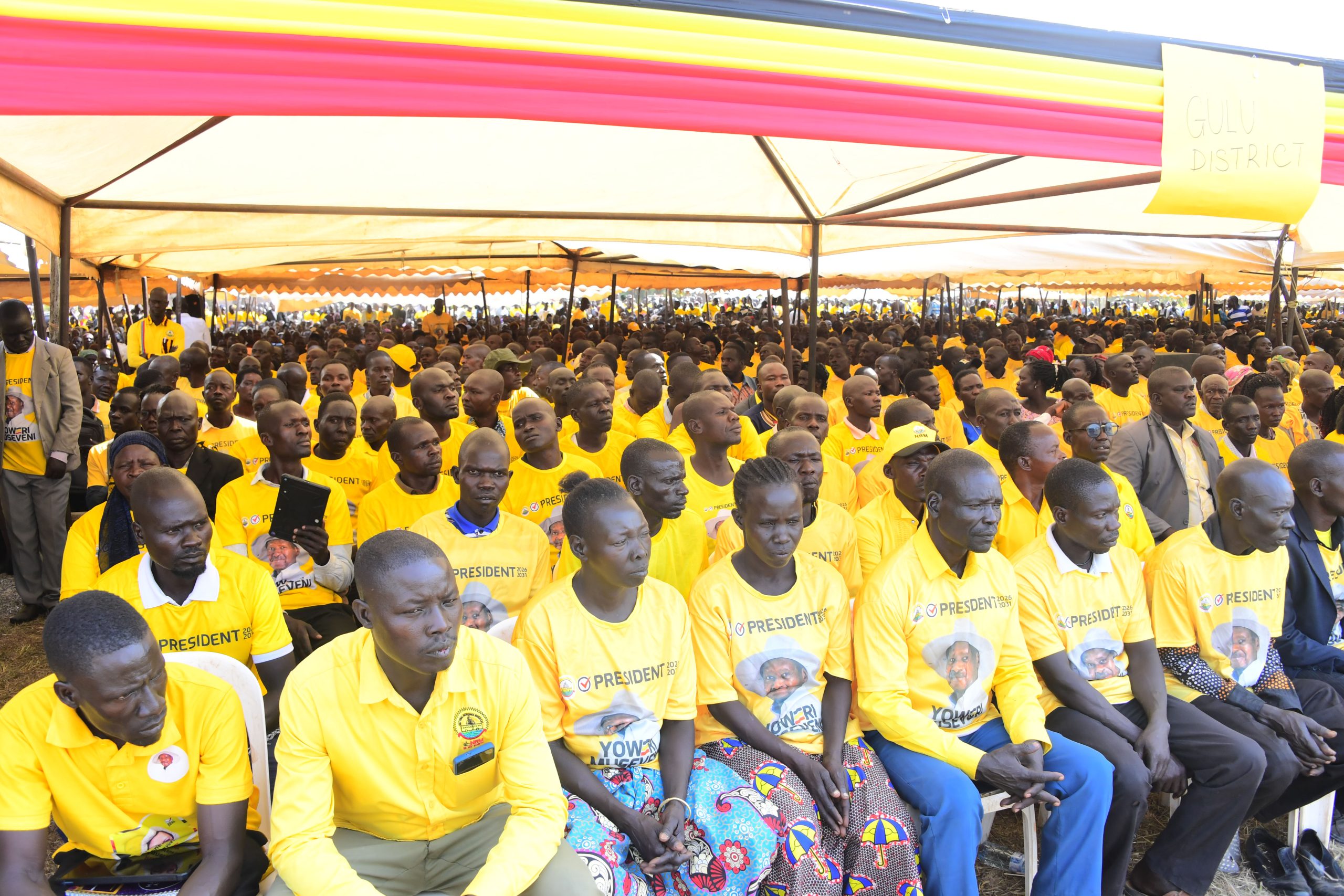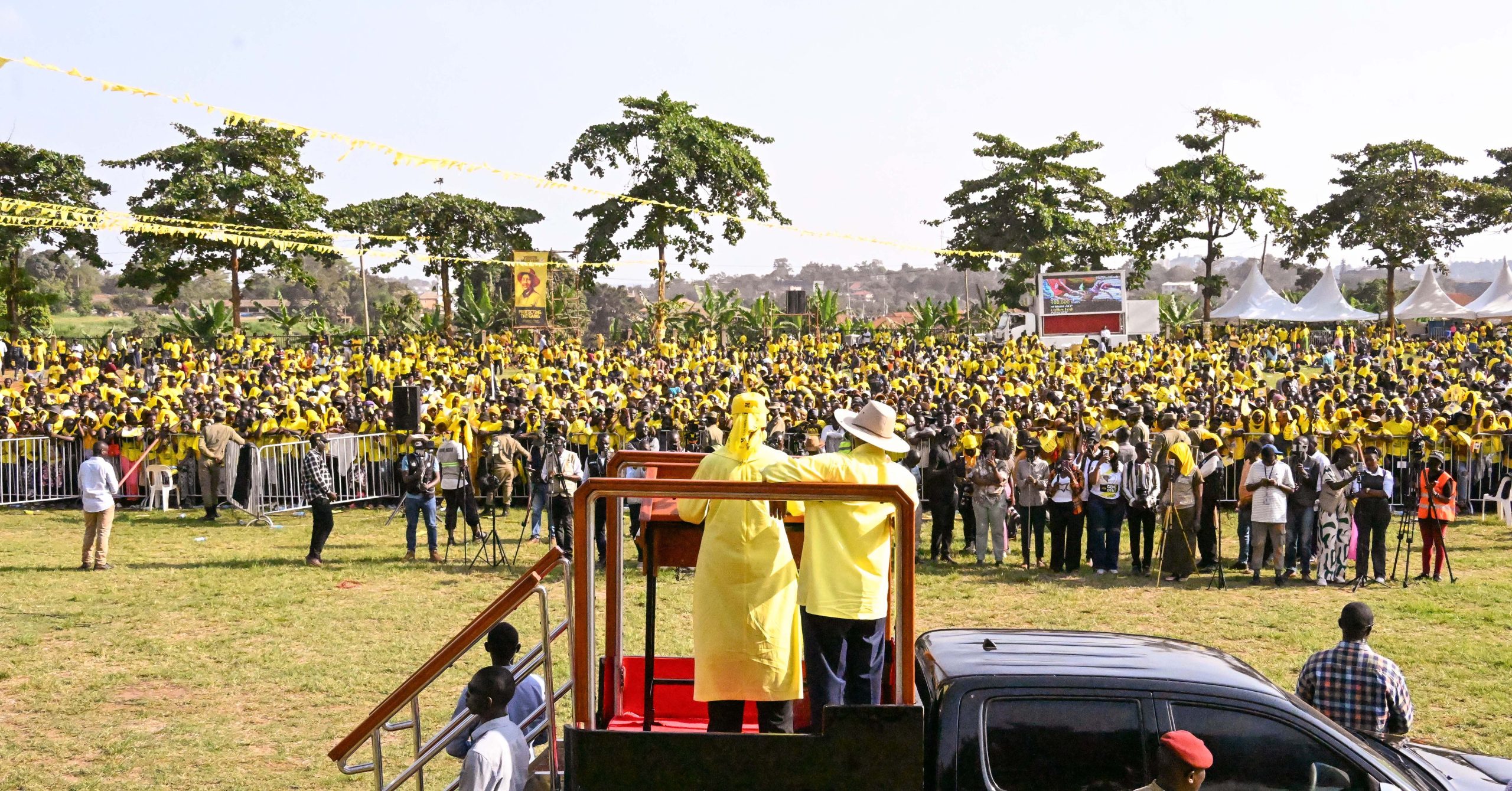President Yoweri Kaguta Museveni has called upon young scientists to join forces with the National Resistance Movement (NRM) government to fight against people who have made it a tendency to block free education for all in government schools.
“You need to unite with the NRM and we will fight all those people who are blocking free education,” President Museveni said.
The President, who is also the Commander in Chief of the Uganda People’s Defence Forces (UPDF) made the remarks at State House Entebbe while delivering a lecture of opportunity to 91 young scientists who have been undergoing two months of training at Sera Kasenyi Training School.
Gen. Museveni informed the trainees that education was a crucial factor in transforming the country socially and economically.
“The question is, how can I transform myself from a traditional person to a modern person? We are saying that you can do it in two ways. One way is through education. That is why we introduced free education. I wanted you to have free education, but your people have been opposing it down there. The head teachers introduced charges in schools. They block free education; it is not fully implemented. If it were implemented, all the children would be going to school, but they do not implement it fully because they don’t understand; they think that they should be sucking money from you,” he stressed.
He added that the other way to achieve socio-economic transformation is by Ugandans joining the money economy, which is made up of four sectors, i.e., commercial agriculture, manufacturing, services, and ICT.
President Museveni further explained that since coming to power in 1986, the NRM government has been preaching its basic message to Ugandans, which is divided into three parts: the mission, the principles and transformation of society through education, and joining the money economy with “ekibaro” (calculation).
The President informed the trainees that the four core principles of the NRM (patriotism, pan-Africanism, socio-economic transformation, and democracy) are very vital in promoting prosperity among Ugandans.
“Even today, the Banyankore produce milk and beef, but they don’t buy those things because, for example, my neighbor has milk, I also have milk, he has bananas, and I have bananas too. He doesn’t buy from me; I also don’t buy from him. So, who buys from him? The people of Kampala The prosperity of the Banyankore is based on Uganda, not the Banyankore, and you can analyze that for all the tribes,” President Museveni noted.
“That is why we say that if you want prosperity, you need Uganda to give you the market, but soon you will find out that the Ugandan market is not enough. Once we wake up, the production will be so big that the Ugandan market is not enough, which is why we need the regional market. That is how we get our principles. Principle number one is patriotism. I love Uganda. Why? Because you need it for your own good. Number two, love Africa (Pan-Africanism) because you need it for your own good, but to take advantage of those, you must become a new person, a modern person (socio-economic transformation).”
He further tasked the trainees to help the government spread the message of the NRM ideology to avoid the ideological mistakes that the country faced in the past.
On the issue of strategic security, Gen. Museveni said Uganda needs to work with other African countries to achieve the goal.
“That is why we talk about the East African Federation. The East African Federation will be able to send a satellite to the moon. Uganda would not be able to send a satellite even when we become a modern country because it’s quite expensive; it needs size. That is why we talk of political and economic integration.”
On the other hand, Gen. Museveni congratulated the trainees upon completing their training.
“In order to consolidate, those who are able can join the army properly to be trained either as specialists or you can do the Officer Cadet course. I shall discuss with the CDF to see what can be offered to you, and then you can choose what you want. After that, we shall deploy you in so many areas of science,” he stated.
The Deputy Commandant of the Special Forces Command (SFC), Brig Gen. Charity Bainababo informed the President that out of the 91 officers, 72 were male and 19 were female, affirming that they undertook training in military law, political education, physical training, skills at arms, and the basics of Kiswahili.
“These participants hold different qualifications ranging from master’s degree to bachelor’s degree and diplomas
